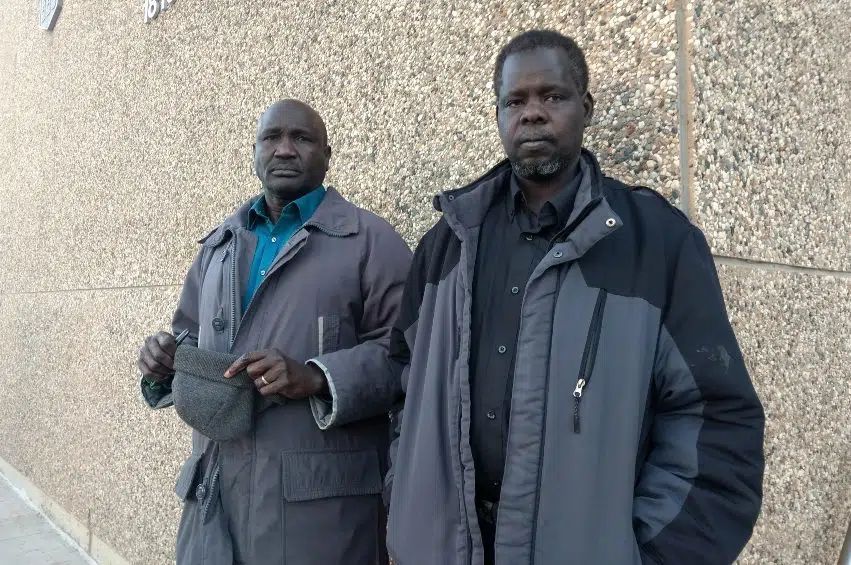The family of Regina’s second murder victim of 2020 is still trying to come to grips with his loss.
Majok Majok died Jan. 24. The 17-year-old boy charged with second-degree murder in connection with Majok’s death made a brief appearance in Regina Youth Court by video Wednesday morning.
Acuil Piok, Majok’s uncle, said the family was devastated by his death and still is in shock.
“Whenever a storm comes and hits, it destroys,” Piok said outside court. “People are trying to piece things together. As I speak with you, there are still people in disbelief: ‘This is real?’ ”
Piok said Majok’s mother was inconsolable for some time after her son’s death.
“It took us almost a week to bring her back to accept the truth,” Piok said. “This is the magnitude of the damage and the effect this incident did in the family.
“We are hoping things will be put together anyway because what else you can do?”
Majok’s father told reporters his son’s death was difficult to accept given the family’s flight from South Sudan.
“My heart is broken,” Agwait Majok said. “I ran away from my country to come here for those kids to be safe.
“If something happens like this, it’s so tough for us.”
Agwait Majok brought his son to Canada from South Sudan when the boy was six years old.
Growing up, Majok Majok played football and basketball and, as his family and friends remember, he got along well with others.
The Miller Comprehensive Catholic High School graduate was just starting his career as a welding technician.
On Jan. 24, Majok was found critically injured inside a home on Wascana Street near First Avenue North.
He died soon after, becoming the city’s second murder victim of the year. Majok’s family say their relative had been shot.
The 17-year-old boy charged in Majok’s death can’t be named under the Youth Criminal Justice Act.
“(The accused) knows what loading the gun means. Aiming the gun at somebody, firing it and being charged with second-degree murder? He should be charged with first-degree murder,” Piok said.
Piok called for reforms to the criminal justice system, saying lenience for youths encourages young people to commit crimes.
“They need to be really treated in a very strong way,” Piok said.
Piok said many of their relatives, including those from South Sudan, were in disbelief that such violence could happen in Canada.
“There are extended family (in that country) who got the news and they were saying, ‘What happened? Canada? How could this happen there?’ ” Piok said. “The assumption is these kids are going to go school, get a good education and be like ambassadors to South Sudan. They will lift up the country.”
The 17-year-old’s case was adjourned to Feb. 19.







